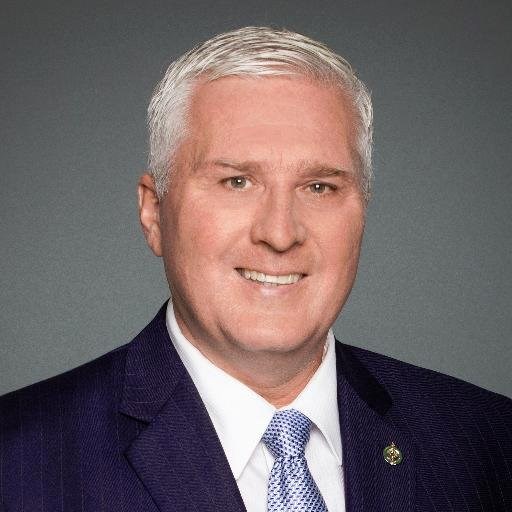If the city chooses to declare a public health emergency around the local opioid epidemic, Barrie-Springwater-Oro-Medonte MP Alex Nuttall says he has council's back.
A motion tabled by Couns. Natalie Harris and Keenan Aylwin at this week's general committee meeting could, if passed at an upcoming city council meeting, trigger funding for front-line work such as treatment, prevention, education and harm reduction.
"I am glad that the council is beginning to tackle this issue," said Nuttall, who added he "emphatically" supports the possibility of declaring a public health emergency to prevent further deaths if city officials decide to take that route. "The opioid crisis has been affecting our community without a co-ordinated and comprehensive response."
It would be up to the head of a municipality, the mayor in this case, to officially declare a public health emergency.
But councillors haven't taken that step yet. They've asked for more information about the ramifications of exactly what that could mean. They also want to hear more from officials with the Simcoe Muskoka District Health Unit, who will be speaking to council at next Monday's meeting. The health unit unveiled their Simcoe Muskoka Opioid Strategy (SMOS) last May to deal with the issue.
"The most important item (Monday) night was the deferral for declaring a local health emergency, which we know is not the responsibility of the federal and provincial governments, but the local government," said Nuttall, who was in the gallery during the debate earlier this week at city hall. "I have a legal opinion that states this."
Barrie-Innisfil MP and opposition deptuty whip John Brassard says he believes city council is heading down the right path.
"If this doesn’t constitute a public health emergency, I don’t know what would," Brassard told BarrieToday. "Clearly, what is being tried to solve this is not working at any level because the problem is getting worse."
Brassard compared the opioid crisis to the SARS scare from several years ago, yet the responses to each has been decidedly different.
"People will recall when the SARS crisis hit in 2002, it was all hands on deck from all levels of government, including public health agencies sparing no money to stop it from spreading," he said.
The statistics related to opioids and the number of deaths far outweighs what happened with SARS, yet a plan was swiftly enacted to fight the virus, which led to the death of 44 people in Canada, Brassard added.
The health unit is also behind an application, along with the Gilbert Centre and the Canadian Mental Health Association (CMHA), to bring a Consumption and Treatment Services (CTS) facility to Barrie. It's up to the province to approve the site.
Nuttall has been vocal in recent months in his opposition to a supervised consumption site in Barrie, but has called for people with addiction issues to have easier access to treatment and rehabilitation services.
Nuttall said he believes talks are starting to come together, but still more needs to be done to address the "undeniable crisis sweeping across Canada."
"Things are going the right direction in terms of the conversation that is taking place," Nuttall said. "Unfortunately, we are seeing governments pass the buck rather than take responsibility and provide an effective and comprehensive strategy to help those struggling with addiction and trauma."
In December, Nuttall called for a debate in the House of Commons around the opioid question. That led to a 'take-note debate' on Dec. 10, which allows MPs to participate in the development of government policy, while making their views known before the government makes a decision. He requested a co-ordinated national strategy be implemented to help battle the ongoing crisis.
"This national strategy must include partnership with all levels of government to provide the resources necessary to prevent more tragic overdose deaths," said Nuttall, who added he's dedicated to working with the city, the province and the feds to find a solution.
"We need to develop and implement a co-ordinated approach, which provides for a continuum-of-care model and seamless pathways to reducing harm, while immediately fortifying services available for treatment and recovery to prevent further overdose deaths," he added.
However, in the meantime, the Conservative MP says more help should be coming from the feds.
"Our country is still waiting for the federal government to announce a national public health emergency, to fund a comprehensive strategy not just more injection sites, and provide leadership on an issue that is affecting so many vulnerable members of our community," Nuttall said.
Since 2016, this opioid epidemic has killed 9,000 people across Canada. In 2017 alone, Barrie had 36 deaths from overdoses.
On Feb. 12, the local health unit issued an alert advising of a spike in overdoses. In the first 10 days of February, there were 28 emergency department visits to Barrie's Royal Victoria Regional Health Centre for suspected overdoses involving opioids and other illicit substances.
Brassard says it's time to set aside any political differences on the issue, because it's going to take a co-ordinated and comprehensive plan.
"I’m certain everyone would agree this is a non-partisan issue, especially the families who have lost loved ones," he said.
"There are people who are trying to get a handle on this, including community groups, faith organizations and politicians, but to solve this needs more than just human resources," Brassard added. "And that’s where government at all levels need to step in and commit greater financial, multi-lateral agency and organizational support."



